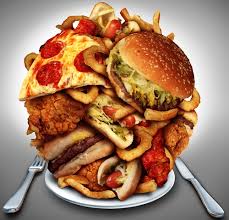A recent study linking diets heavy in junk food and cancer likely gave nurses everywhere pause. Although nurses see the health problems brought on by poor diet choices every day, educating patients and changing their habits is tough.
The study, published in the peer-reviewed PLOS journal found that a diet heavy in junk food was linked with increased cancer rates. Using Nutri-Score, a food labeling system used in parts of Britain and Europe, researchers were able to identify that diets with an overall lower score for nutritional value was associated with increased cancer and other health problems.
Nutri-Score uses different scores and color labels depending on the nutritional quality of foods. At a glance, consumers can identify how nutritious a food is. According to the study, those who consumed the most junk food had “higher risks of cancers of the colon-rectum, upper aerodigestive tract and stomach, lung for men, and liver and postmenopausal breast for women.”
How can nurses use this study to help their patients? While many patients know the risks of a poor diet, they don’t often identify certain foods as less nutritious as others. What’s the difference between stopping for a fast-food burger than making one at home? The difference can be significant based on the choices, but sometimes it has to be explained.
Nurses are in an excellent position to help patients understand that even small tweaks to their food choices and preparation can make a significant difference in their health. Just on the most basic level, meals made at home tend to have less fat and sodium. A burger at home can be made with a leaner ground beef and accompanied by a salad (bagged salads are easy), a piece of fruit, and oven baked fries. It takes some preparation and planning, but even if the swap is made a couple of times a month, the health benefits will add up.
The study was able to adjust for other factors such as family history, lower physical activity, and higher BMI that can also influence cancer rates. Food choices are such an important part of health and one that can be adapted in small doses. Nurses can help patients assess their food intake and show them where small swaps like popcorn for chips, flavored seltzer and juice for soda, or salsa for onion dip can add up.
Patients might also benefit from hearing about fitting more nutritional foods into their diets. Junk food and cancer might be associated, but intake of junk food is controllable. No one has to give up pizza night, but adding vegetables (either on the pizza or as a side salad) will boost the overall nutrition for the meal. A breakfast of cereal gets a boost from a handful of berries. Even using a store-bought prepared chicken as the basis for an at-home meal will give you more control over the total portion, calories, and flavors.
And as a busy nurse, it can help to take some of the ideas to heart. Consider your eating habits and how you might be able to add and subtract to get more bang for your buck. Bring foods to work that are easy and fast to eat, but offer as much nutrition as possible. You’ll find doing so gives you more energy, keeps you feeling full longer, and might even help regulate your fatigue levels, weight, blood pressure, blood sugar, or stress.
If you’re able to notice a few positive changes, you’ll be the best champion of making nutritional changes for your patients. And if they are trying to eat better to gain control over their health now and in the future, each small boost in nutritional food is worthwhile.
- A Camp Nurse Volunteer Shares the Joy - April 30, 2024
- Is the FNP Program Right for You? - April 24, 2024
- WOC Nurses Week Highlights Specialty - April 16, 2024



